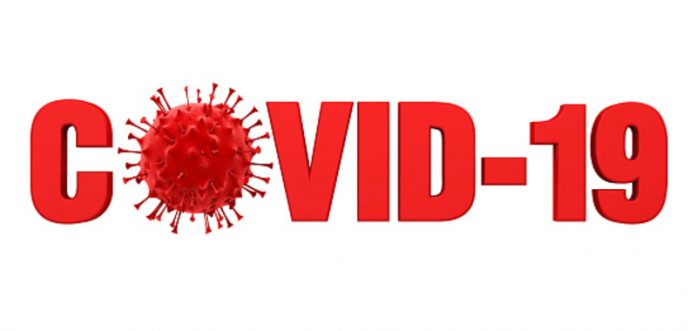This article has been written by Shivam Sharma pursuing Diploma in Intellectual Property, Media and Entertainment Laws and has been edited by Oishika Banerji (Team Lawsikho).
This article has been published by Sneha Mahawar.
Table of Contents
Introduction
The COVID-19 pandemic struck a huge blow to global trade and economic growth worldwide. The least developed countries (LDCs) and many developing countries were the worst affected not only in relation to global trade and economic growth but also because of an alleged failure in combating the pandemic itself. Such a failure is not due to a lack of government initiatives or a half-hearted response to such a huge problem but because of reasons like procurement of vaccines, huge costs involved in implementing vaccination drives, unavailability of medical infrastructure and medical equipment to combat covid, low production capacity, etc. Even when multiple vaccines with very promising efficiency were circulating in the global market, their procurement and availability remained only a grim possibility for most of the developing and least developed countries.
Many stakeholders and affected parties had blamed ‘global disparity’ as one of the main causes. This means that poor(er) countries had to depend too much on high-income countries for vaccine availability and distribution as they themselves cannot resolve any of these two issues. Therefore, as a means to counter such a problem one possible solution was to raise the issue before international bodies that work towards resolving global issues of pressing importance to their member states. In such pursuit the issues were raised before the World Trade Organisation (WTO), the World Intellectual Property Organisation (WIPO) and World Health Organisation (WHO) which then took charge of the situation created by the global pandemic. After a lot of deliberations, one of the suggestions which came up to the forefront was a much more comprehensive waiver of Intellectual property on vaccines with changes from the TRIPS’ earlier stand at the Doha Declaration of 2001.
This article tries to throw light on the Ministerial Decision on the TRIPS Agreement (MC12) of June 17th, 2022, its contrasting features from the Doha Declaration of 2001 and IP waiver on vaccines as a possible solution to the problem of vaccine unavailability and its inequitable distribution.
An insight to the Doha Declaration, 2001
The Preamble to the TRIPS Agreement is pro-protecting IP rights of its members and promotes effective and adequate protection of intellectual property rights. Its stand is to uphold the member’s rights to recover costs of production, storage, supply, etc and to devise any other way of facilitating healthcare during the pandemic situation. In 2001 when the HIV/AIDS epidemic was soaring the WTO adopted in its Ministerial Conference, the ‘Declaration on the Trips Agreement and Public Health’, dated November 14th, 2001 also commonly known as the ‘Doha Declaration’.
At the Doha Declaration, the WTO had relaxed the rigidities of the TRIPS Agreement by granting right to grant compulsory licenses with the freedom to determine the grounds upon which such licenses are granted and the “right to determine what constitutes a national emergency or other circumstances of extreme urgency, where public health crises, including those relating to HIV/AIDS, tuberculosis, malaria and other epidemics, can represent a national emergency or other circumstances of extreme urgency” as per Article 31 of the TRIPS.
Article 31 provides for use of licenses without authorization, in case of Patent legislation. Para 5 of the Doha Declaration allows Member States to choose what constitutes an emergency in which case such compulsory licensing can be allowed. The decision of August 2003 on “IMPLEMENTATION OF PARAGRAPH 6 OF THE DOHA DECLARATION ON THE TRIPS AGREEMENT AND PUBLIC HEALTH” further paved way for least developed countries and other WTO Members who could not effectively derive benefit of compulsory licensing owing to insufficient or no manufacturing capacity in the pharmaceutical sector. Under this decision the least developed country Members were deemed to have insufficient or no manufacturing capacities in the pharmaceutical sector whereas other Members who wish to import pharmaceutical products were required to give a notification to the Council for TRIPS of its intention to use the system as an importer along with necessary specifications as required.
It is indeed a fact that the grant of compulsory license (CL) under the Doha Declaration has been of quite some use to underdeveloped nations over the years. For example, because of its own production incapacity, Rwanda in 2007 imported a cheaper generic of the HIV drug Triavir, from a Canadian company Apotex under compulsory licensing. Similarly, Brazil, when faced with the issue of high prices of patented medicines, amended its Patent laws in such a way that allowed it to issue a compulsory license if the patented medicine was not produced within three years of the grant of patent.
To tackle the public health emergency caused by HIV/AIDS in 2002, Government of Zimbabwe took refuge under the CL clause which allowed the government or a third party to utilize/import patented products/pharmaceuticals or their generic alternatives after a declaration of emergency. The Mozambique, Zambian and Indonesian governments in a parallel tone have utilized the CL clause to either grant authorization to companies to produce patented drugs or their generic alternatives domestically or for their import with provisions for adequate remuneration to the patent holder as well.
Recent IP waiver decision of 17th June, 2022
After the on struck of the COVID-19 pandemic in India and South Africa had submitted their communications to the Council for Trade-Related Aspects of Intellectual Property Rights, titled: “WAIVER FROM CERTAIN PROVISIONS OF THE TRIPS AGREEMENT FOR THE PREVENTION, CONTAINMENT AND TREATMENT OF COVID-19”.
The communication termed the pandemic as an exceptional circumstance and requested the Council for TRIPS to waive the implementation application and enforcement of various sections of the TRIPS Agreement in relation to prevention, containment, or treatment of COVID-19. Para 2 of the draft decision annexed to the communication precluded ‘Performers, Producers of Phonograms (Sound Recordings) and Broadcasting Organizations’, under Article 14 of the TRIPS Agreement, from the ambit of the waiver. However, the actual decision of June 17th, 2022 differed from the draft decision and diluted the effect of the waiver. The initial communication of 2020 by India and South Africa called for a much more wide-ranging and elaborate waiver on not only COVID-19 vaccines but also on related drugs, diagnostics, technologies, and therapeutics. The Ministerial Decision of 2022 was however, focused on waiver of Patent rights on COVID-19 vaccines only, though under Para 8 it did allow the Members to decide on the extension of the decision to cover the production and supply of COVID-19 diagnostics and therapeutics within six months from the date of the decision.
Section 7 of the TRIPS Agreement i.e. “PROTECTION OF UNDISCLOSED INFORMATION” talks about trade secrets. A waiver upon protection and rights given in Section 7 was asked for in the communication of 2020 but the Ministerial Decision of 2022 did not include this portion. As a result, in the absence of availability of such other types of intellectual property as trade secrets, many countries have still not been able to utilize the advantages of the waiver and gain access to vaccines. Transfer of technological ‘know-how’ and public funding from advanced countries to developing countries can reduce the burden that Patents may impose on vaccine availability. Critics of the recent decision which includes a group of Members of the WTO have called out the decision for being unable to give access to life saving drugs and testing kits (diagnostics) and other therapeutics to LDCs which lack capacity to produce them.
Is IPR a barrier and can a waiver help
The argument that there is little to no evidence whether access to COVID-19 medicines, vaccines and technologies is blocked by intellectual property rights, does not hold water. A September 2017 report by Médecins Sans Frontières (MSF) has shown how monopolies on Patent rights can increase the prices of pharmaceutical products and can hinder competition and supply. It goes on to say that protected patents hinder the production, increase costs, and prevent private players from entering the manufacturing domain in the absence of key ‘know how’. Even expert organizations such as WHO, Gavi and the Vaccine Alliance have earlier noted that Patent rights are a growing concern in access to vaccines.
As research studies have shown that a huge number of Patents on background IP involved in mRNA technology that is used in the manufacturing of COVID-19 vaccines by different companies, has already been granted, it is safe to say that in the absence of the patent waiver benefit of the WTO Ministerial Conference’s decision of 2022, it would have prevented other developers from developing alternative generic versions, or compelled them to close their production incase they had already started.
Para 3(b) of the decision waives the requirement under Article 31(f) that authorized use should be for supply in the domestic market and allows for export “to eligible Members, including through international or regional joint initiatives that aim to ensure the equitable access of eligible Members to the COVID-19 vaccine covered by the authorization”. This is of particular importance to least developed countries in the African region where joint initiatives can cut cost of import and allow for sharing of manufacturing abilities.
Conclusion
The 2022 decision at the least offers an opportunity to avail compulsory license to start domestic manufacturing of cheaper alternatives or generic substitutes. However in the case of many LDCs with little production capacity, the problem of low vaccinations has persisted. Although an extension on a waiver to apply to therapeutics and diagnostics has been sought for well over six months by over 80 countries, a consensus has still not been arrived at. Lastly, a large noticeable impact of the waiver decision of 2022 is still to be seen, especially in LDCs with no manufacturing capacity. Evidence does suggest that IP rights have imposed barriers in the smooth roll out of vaccines and other drugs but a more fruitful outcome could be reached with a much more comprehensive waiver on other subject matters of IPR as well to better prepare us for the future.
Students of Lawsikho courses regularly produce writing assignments and work on practical exercises as a part of their coursework and develop themselves in real-life practical skills.
LawSikho has created a telegram group for exchanging legal knowledge, referrals, and various opportunities. You can click on this link and join:
Follow us on Instagram and subscribe to our YouTube channel for more amazing legal content.
 Serato DJ Crack 2025Serato DJ PRO Crack
Serato DJ Crack 2025Serato DJ PRO Crack











 Allow notifications
Allow notifications


